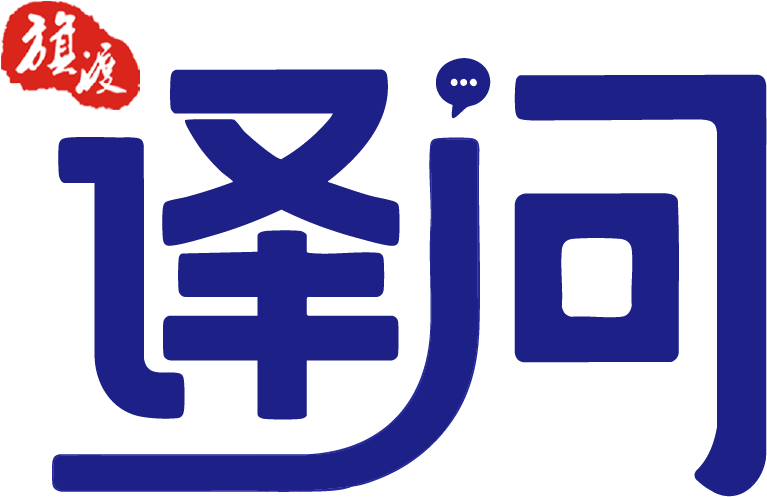
中英双语-企业内部控制应用指引第7号——采购业务(可下载)
Guidelines for the Application of Internal Control in Enterprises No. 7 - Procurement
企业内部控制应用指引第7号——采购业务
Promulgating Institution: Ministry of Finance; China Securities Regulatory Commission; National Auditing Office; China Banking Regulatory Commission; China Insurance Regulatory Commission
Document Number: Cai Kuai [2010] No. 11
Promulgating Date: 04/15/2010
Effective Date: 04/15/2010
颁布机关: 财政部; 中国证券监督管理委员会; 审计署; 中国银行业监督管理委员会; 中国保险监督管理委员会
文 号: 财会[2010]11号
颁布时间: 04/15/2010
实施时间: 04/15/2010
Chapter 1: General Provisions
第一章 总 则
Article 1 With a view to pushing enterprises to make reasonable procurement, meeting the needs of production and management, standardizing procurement activities, and guarding against procurement risks, these Guidelines are formulated in accordance with the relevant laws and regulations, as well as the Basic Norms for the Internal Control of Enterprises.
第一条 为了促进企业合理采购,满足生产经营需要,规范采购行为,防范采购风险,根据有关法律法规和《企业内部控制基本规范》,制定本指引。
Article 2 For the purpose of these Guidelines, procurement shall refer to the activities related to the purchase of goods (or the acceptance of services) and the making of payments.
第二条 本指引所称采购,是指购买物资(或接受劳务)及支付款项等相关活动。
Article 3 An enterprise shall, at least, pay attention to the following risks of procurement:
(1) The risks that the unreasonable arrangement of the procurement plan and the inaccurate prediction of the trend of market changes result in inventory shortages or overstocking, which may lead to production suspension of the enterprise or the waste of resources;
(2) The risks that suppliers are not properly selected, procurement methods are not reasonable, bidding or pricing mechanism is not scientific, and authorization and examination and approval are not standardized, which may lead to irregularities, or cause the enterprise to purchase inferior materials at high prices or be a victim of fraud; and
(3) The risks that the final acceptance of the procured materials is not rigorous, and payments are not strictly examined before being made, which may result in the loss of the procured materials or capital, or the damage of the creditability of the enterprise.
第三条 企业采购业务至少应当关注下列风险:
(一)采购计划安排不合理,市场变化趋势预测不准确,造成库存短缺或积压,可能导致企业生产停滞或资源浪费。
(二)供应商选择不当,采购方式不合理,招投标或定价机制不科学,授权审批不规范,可能导致采购物资质次价高,出现舞弊或遭受欺诈。
(三)采购验收不规范,付款审核不严,可能导致采购物资、资金损失或信用受损。
Article 4 An enterprise shall, in light of its actual situations, make a comprehensive clean-up of the procurement process, improve the management systems related to procurement, make overall arrangement and coordination of the procurement plan, specify the responsibilities and examination and approval authority in terms of procurement requisition, examination and approval, actual purchase, final acceptance, payment, post-procurement evaluation and other aspects, and carry out procurement activities in accordance with the prescribed examination and approval authority and procedures. The enterprise shall establish a price supervision mechanism, conduct regular inspection and evaluation of the weak links in the procurement process, and take effective control measures, so as to ensure that the procurement of materials meets the needs of its production and operation.
第四条 企业应当结合实际情况,全面梳理采购业务流程,完善采购业务相关管理制度,统筹安排采购计划,明确请购、审批、购买、验收、付款、采购后评估等环节的职责和审批权限,按照规定的审批权限和程序办理采购业务,建立价格监督机制,定期检查和评价采购过程中的薄弱环节,采取有效控制措施,确保物资采购满足企业生产经营需要。
Chapter 2: Purchase
第二章 购 买
Article 5 An enterprise shall put its procurement operations under centralized management, and avoid procurement from too many suppliers or decentralized procurement, so as to improve its procurement efficiency, reduce procurement costs and block management loopholes. The enterprise shall conduct job rotation of its procurement personnel on a regular basis. For important procurement or procurement of a highly technical nature, the enterprise shall organize relevant experts to conduct argumentation, and adopt collective decision-making and examination and approval.
Except for sporadic materials or services in small amount, the enterprise shall not arrange the same agency to manage the entire procurement process.
第五条 企业的采购业务应当集中,避免多头采购或分散采购,以提高采购业务效率,降低采购成本,堵塞管理漏洞。企业应当对办理采购业务的人员定期进行岗位轮换。重要和技术性较强的采购业务,应当组织相关专家进行论证,实行集体决策和审批。
企业除小额零星物资或服务外,不得安排同一机构办理采购业务全过程。
Article 6 An enterprise shall establish a procurement requisition system, set up centralized management departments according to the types of materials to be purchased or the types of services to be accepted, confer thereupon the corresponding procurement requisition right, and specify the duties and authority of relevant departments or personnel and the corresponding procedures for procurement requisition and examination and approval.
The enterprise may set up a designated department to receive procurement requisition according to its actual conditions. The said department shall review the procurement needs put forward by other departments, classify and consolidate the requisitions, and make overall arrangements of the procurement plan of the enterprise.
A department with the procurement requisition right shall go through the procurement requisition procedures for budgetary items in strict accordance with the execution progress of the budget, and shall make reasonable procurement applications according to market changes. For procurement items exceeding the budget or not covered under the budget, the department shall first adjust the budget, request the department or personnel with the corresponding authority to examine and approve the adjusted budget, and thereafter handle the formalities for procurement requisition.
第六条 企业应当建立采购申请制度,依据购买物资或接受劳务的类型,确定归口管理部门,授予相应的请购权,明确相关部门或人员的职责权限及相应的请购和审批程序。
企业可以根据实际需要设置专门的请购部门,对需求部门提出的采购需求进行审核,并进行归类汇总,统筹安排企业的采购计划。
具有请购权的部门对于预算内采购项目,应当严格按照预算执行进度办理请购手续,并根据市场变化提出合理采购申请。对于超预算和预算外采购项目,应先履行预算调整程序,由具备相应审批权限的部门或人员审批后,再行办理请购手续。
Article 7 An enterprise shall establish a scientific supplier assessment and market access system to determine the list of qualified suppliers, sign quality assurance agreements with the selected suppliers, establish a supplier management information system, conduct real-time management and comprehensive evaluation of the quality, prices, delivery timeliness and supply conditions of the materials or services provided by the suppliers as well as their credit worthiness and operating conditions, and make reasonable choices of, and adjustments to, the suppliers based on the evaluation results.
第七条 企业应当建立科学的供应商评估和准入制度,确定合格供应商清单,与选定的供应商签订质量保证协议,建立供应商管理信息系统,对供应商提供物资或劳务的质量、价格、交货及时性、供货条件及其资信、经营状况等进行实时管理和综合评价,根据评价结果对供应商进行合理选择和调整。
企业可委托具有相应资质的中介机构对供应商进行资信调查。
Article 8 An enterprise shall select procurement approaches in a reasonable manner based on market conditions and procurement plans.
The enterprise shall conduct bulk purchase by way of bidding, and shall determine the scope, standards and implementing procedures for bidding and bids and the bid evaluation rules in a reasonable manner. The enterprise may procure general materials or services by way of price inquiry or targeted procurement, and shall sign procurement contracts or agreements with the suppliers selected. The enterprise may adopt the direct purchase approach to procure sporadic materials or services of small value.
第八条 企业应当根据市场情况和采购计划合理选择采购方式。
大宗采购应当采用招标方式,合理确定招投标的范围、标准、实施程序和评标规则;一般物资或劳务等的采购可以采用询价或定向采购的方式并签订合同协议;小额零星物资或劳务等的采购可以采用直接购买等方式。
Article 9 An enterprise shall establish a pricing mechanism for materials procurement, determine the procurement prices in a reasonable manner by a variety of ways such as procurement by agreement, bidding, negotiation, and price inquiry and comparison, and minimize the impact of market changes on the procurement prices incurred by the enterprise.
For bulk purchasing, the enterprise shall determine the procurement prices by way of bidding and bids. For the procurement of other goods or services, the enterprise shall determine the maximum procurement prices according to market conditions, and adjust such maximum prices as appropriate.
第九条 企业应当建立采购物资定价机制,采取协议采购、招标采购、谈判采购、询比价采购等多种方式合理确定采购价格,最大限度地减小市场变化对企业采购价格的影响。
大宗采购等应当采用招投标方式确定采购价格,其他商品或劳务的采购,应当根据市场行情制定最高采购限价,并对最高采购限价适时调整。
Article 10 An enterprise shall draft a procurement contract based on the determined supplier, procurement approach and procurement price, accurately state the terms of the contract, specify the rights and obligations of both parties and the liability for breach of contract, and shall conclude the contract in accordance with the prescribed authority.
The enterprise shall, based on production and construction progress and the characteristics of the materials to be procured, make a reasonable choice of the means and the mode of transportation, and handle matters related to transportation, insurance, etc.
第十条 企业应当根据确定的供应商、采购方式、采购价格等情况拟订采购合同,准确描述合同条款,明确双方权利、义务和违约责任,按照规定权限签订采购合同。
企业应当根据生产建设进度和采购物资特性,选择合理的运输工具和运输方式,办理运输、投保等事宜。
Article 11 An enterprise shall establish a stringent procurement final acceptance system, determine the inspection methods, and entrust a specialized final acceptance agency or final acceptance inspectors with the inspection of the varieties, specifications, quantity, quality and other related aspects of the procured items, and issue final acceptance certificates. Professional tests shall be conducted for bulk purchase, and new varieties and special materials procured.
Once any abnormality is uncovered during the final acceptance process, the final acceptance agency or person shall immediately report the case to the enterprise's relevant department with the management authority, and the latter shall find out the reasons and handle the case in a timely manner.
第十一条 企业应当建立严格的采购验收制度,确定检验方式,由专门的验收机构或验收人员对采购项目的品种、规格、数量、质量等相关内容进行验收,出具验收证明。涉及大宗和新、特物资采购的,还应进行专业测试。
验收过程中发现的异常情况,负责验收的机构或人员应当立即向企业有权管理的相关机构报告,相关机构应当查明原因并及时处理。
Article 12 An enterprise shall strengthen the management of the materials procurement and supply process, track the performance of procurement contracts in accordance with the major clauses thereof, issue a written report on abnormal circumstances that may affect production or project progress, and propose solutions in a timely manner.
The enterprise shall properly keep records of all aspects of procurement operations, and apply a registration system to, or conduct information management of, the entire procurement process, to ensure the traceability thereof.
第十二条 企业应当加强物资采购供应过程的管理,依据采购合同中确定的主要条款跟踪合同履行情况,对有可能影响生产或工程进度的异常情况,应出具书面报告并及时提出解决方案。
企业应当做好采购业务各环节的记录,实行全过程的采购登记制度或信息化管理,确保采购过程的可追溯性。
Chapter 3: Payment
第三章 付 款
Article 13 An enterprise shall strengthen the management of procurement payments, improve the payment process, specify the responsibilities and power of payment reviewers, conduct stringent audit of the procurement budget, contracts, relevant documentation, examination and approval procedures, and other related contents, and make timely payments in accordance with the contracts if no error is found after review and verification.
The enterprise shall, in the payment process, carefully examine the authenticity, legitimacy and validity of the procurement invoices. Once a false invoice is found, the enterprise shall find out the reasons, and report and handle the situation in a timely manner.
The enterprise shall attach due importance to the process control and follow-up management of procurement payments, and shall refuse to make any payment for which any irregularity is found, so as to avoid financial losses and credit damage.
The enterprise shall select the payment methods in a reasonable manner, strictly follow contractual agreements, and guard against legal risks that may be brought about by improper payment methods, so as to ensure fund security.
第十三条 企业应当加强采购付款的管理,完善付款流程,明确付款审核人的责任和权力,严格审核采购预算、合同、相关单据凭证、审批程序等相关内容,审核无误后按照合同规定及时办理付款。
企业在付款过程中,应当严格审查采购发票的真实性、合法性和有效性。发现虚假发票的,应查明原因,及时报告处理。
企业应当重视采购付款的过程控制和跟踪管理,发现异常情况的,应当拒绝付款,避免出现资金损失和信用受损。
企业应当合理选择付款方式,并严格遵循合同规定,防范付款方式不当带来的法律风险,保证资金安全。
Article 14 An enterprise shall strengthen the management of pre-payments and deposits. In the case of large or long-term pre-payments, the enterprise shall make regular tracking and verification, conduct comprehensive analysis of the term of the pre-payments, the reasonableness of fund occupation, and the risks of the inability to recover the funds, and take prompt measures against doubtful pre-payments.
第十四条 企业应当加强预付账款和定金的管理。涉及大额或长期的预付款项,应当定期进行追踪核查,综合分析预付账款的期限、占用款项的合理性、不可收回风险等情况,发现有疑问的预付款项,应当及时采取措施。
Article 15 An enterprise shall strengthen the control of the accounting system related to purchase, final acceptance and payment, record in detail the information of suppliers, procurement requisition, procurement contracts, procurement notices, final acceptance certificates, certificates of warehouse entry, commercial papers, payments, etc., and ensure that the accounting records, procurement records and warehousing records are consistent with each other upon verification.
The enterprise shall designate persons to verify with the suppliers the accounts payable, instruments payable, pre-payments and other current accounts on a regular basis by way of written confirmation, etc.
第十五条 企业应当加强对购买、验收、付款业务的会计系统控制,详细记录供应商情况、请购申请、采购合同、采购通知、验收证明、入库凭证、商业票据、款项支付等情况,确保会计记录、采购记录与仓储记录核对一致。
企业应当指定专人通过函证等方式,定期与供应商核对应付账款、应付票据、预付账款等往来款项。
Article 16 An enterprise shall establish a system to manage returned items, specify the conditions and procedures for return of items, warehouse exit of items, payment refund, etc., make clear matters related to return of items in the contracts concluded with suppliers, and recover the payments for the returned items in a timely manner. Where the returned items satisfy the conditions on claims for compensation, the enterprise shall promptly claim for compensation within the claim period.
第十六条 企业应当建立退货管理制度,对退货条件、退货手续、货物出库、退货货款回收等作出明确规定,并在与供应商的合同中明确退货事宜,及时收回退货货款。涉及符合索赔条件的退货,应在索赔期内及时办理索赔。
附件:

